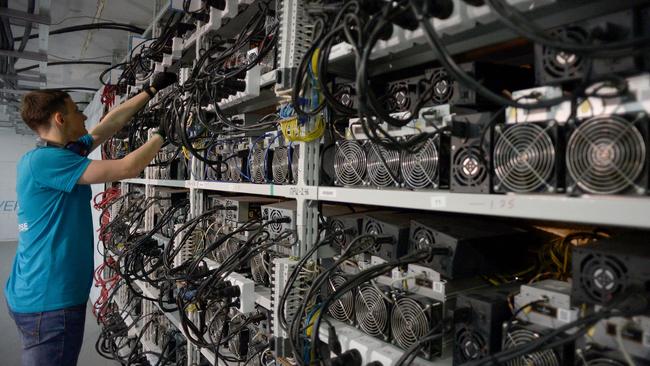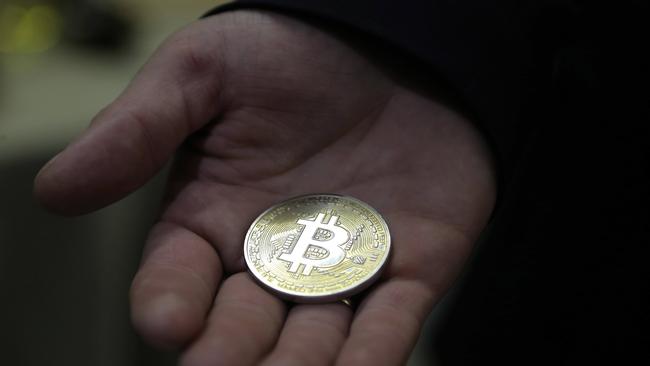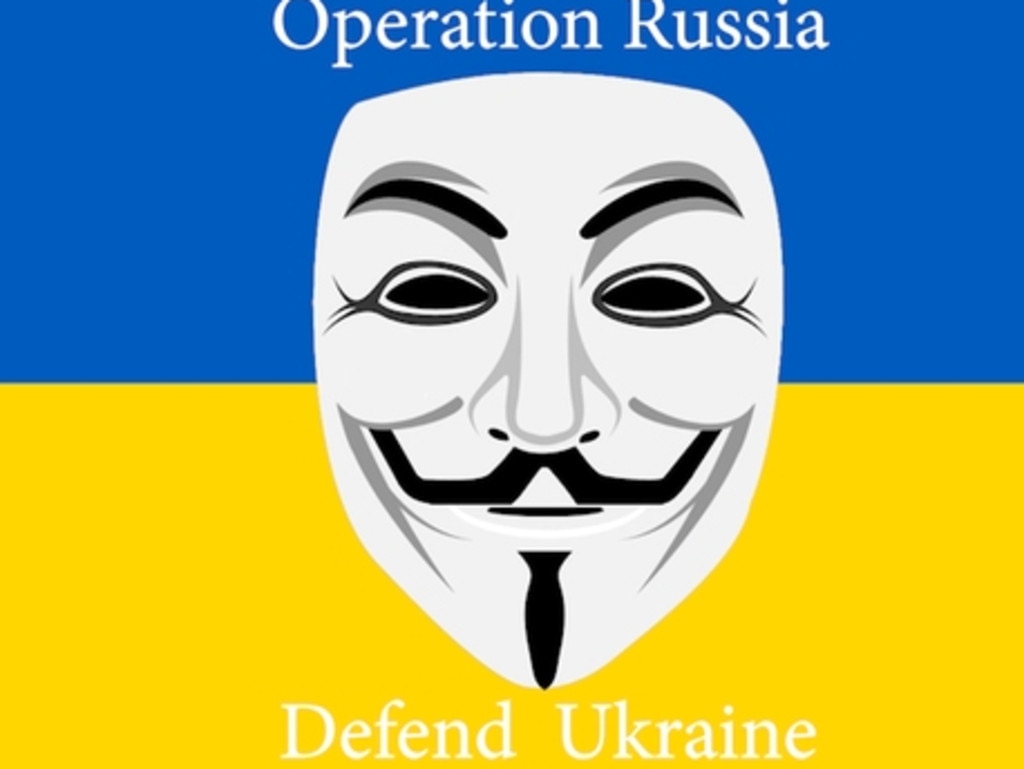Fear of Russian cryptocurrency sanctions bust
Large cryptocurrency transactions have quadrupled, sparking fear that Russia is using digital currency to circumvent sanctions.

A quadrupling in large cryptocurrency transactions has sparked fear that Russia is using digital currency to circumvent sanctions imposed by Europe, the US, Australia and others.
Concern is based around cryptocurrency transactions worth more than $US100,000 that swelled from $22bn to $88bn in the two days after western countries blocked Russia from the global SWIFT payments network on 26 February, according to a report by the Australian Computer Society’s Information Age.
There was evidence the money was mainly moved through blockchain, rather than invested in cryptocurrency, the report by David Braue said.
“High net-worth criminal ‘whales’, like the Russian oligarchs targeted in the current sanctions, are currently holding more than $34.5b ($US25b) in cryptocurrency, according to a new Chainalysis report that identified 4068 criminal whales.”
This week Australia’s Lowy Institute warned that blockchain-based financial networks were key to President Vladimir Putin’s efforts to sanction-proof Russia.
“The Russian government has made progress in its ‘digital rouble’ program, whereby transactions are carried out on a Russian-operated blockchain system. This version of a Central Bank Digital Currency is now relatively common across the world as many governments try to tap into, and control, the burgeoning cryptocurrency sector.”

However, cryptocurrency exchanges are feeling the heat over the possibility they are aiding and abetting Russia to breach sanctions. The world’s largest exchange, Cayman Islands registered Binance, came under attack when it said it would not impede cryptocurrency traffic in and out of Russia. “We are not going to unilaterally freeze millions of innocent users’ accounts,” a spokesman for Binance told CNBC.
“To unilaterally decide to ban people’s access to their crypto would fly in the face of the reason why crypto exists.”
Binance did say it would block the accounts of sanctioned Russian individuals, but it is likely to have difficulty achieving this where money is transferred using a web of accounts and false names.
In Australia, regulated cryptocurrency exchanges have to verify who is trading on their platforms, and record tax file numbers. The Brisbane based exchange Swyftx said the local exchange industry was in a position of “some strength”.
“All exchanges register with AUSTRAC, meaning they’re obliged to undertake both sanctions and know your customer (KYC) checks, as well as anti-money laundering reporting,” said Michael Harris, Swyftx head of corporate development.
“From our own perspective, we’re continuing to monitor DFAT advice closely to make sure sanctions requirements are met in full.
“We already have an established and robust program in place for complying with sanctions, which includes automatic cross-checking of accounts against official sanctions lists.”

But there remains concern Russia and its oligarchs could access dark web markets and exchanges in safe havens to move funds using blockchain currencies.
Supporters of both Russia and Ukraine meanwhile are continuing their online cyberattacks. They have gone beyond targeting government and defence websites to disabling infrastructure and identifying military personnel.
A Trustwave SpiderLabs report released overnight said a Russian lone wolf hacker called JokerDNR had published the names, title and addresses and contact information of Ukrainian government and military officers, an action that will put them and their families in grave danger should Russia succeed in occupying the country.
The same person claimed to have hacked into a western agency and retrieved satellite images of Ukrainian military bases for Russian use, said the report.
Ukraine’s crowdsourced IT Army of volunteers and supporters co-ordinated through a Telegram chat group has grown to 276,000. It claims to have taken down Russia’s largest stock exchange online, the state-owned Sberbank and the Russian Ministry of Foreign Affairs. After being hacked, Russian news agency TASS’s website contained a message criticising Mr Putin.
Apple meanwhile has announced it has stopped the sale of iPhone and other products to Russia.





To join the conversation, please log in. Don't have an account? Register
Join the conversation, you are commenting as Logout